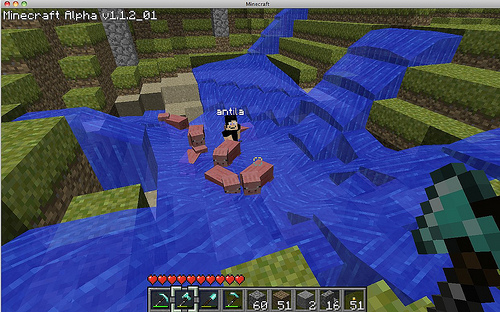Print Edition: May 27, 2011
By Joel Smart (The Cascade) – Email
 With the emergence of online team-based gameplay, the popularization in parts of the world of elite pro-gamers, and the ease of sharing gameplay videos over YouTube, it should be no surprise that video game commentary is starting to grow in popularity.
With the emergence of online team-based gameplay, the popularization in parts of the world of elite pro-gamers, and the ease of sharing gameplay videos over YouTube, it should be no surprise that video game commentary is starting to grow in popularity.
The “Let’s Play” phenomenon on YouTube boils down to the fact that people who love playing video games also love to share that love with the world. If you’re having trouble in a game, you can probably find someone playing that section of the game on YouTube and see how they accomplished it. Most “Let’s Play” videos consist of the video footage of gameplay with commentary by the person playing the game dubbed over top. From my experience, these comments tend to include off-hand remarks about characters or the storyline or a simple description of what their thought process is in how they are choosing to play. Some are funny, some are serious, while some are… something else.
YouTube user KPopp, a criminology major from Chicago, makes her own brand of “Let’s Play” videos. She recently bought the new hit detective game L.A. Noire, and has been uploading videos with her experience, where she tells her audience her suspicions about the cases that she’s trying to solve. While some game commentators make only sparse comments while they game, she maintains a near-steady monologue during the entire experience. She has also made “Let’s Play” videos for Fallout, Oblivion, Bioshock, and Heavy Rain among others. To date, KPopp has almost 42,000 subscribers and four million upload views. The most popular “Let’s Play” video on YouTube has almost four million hits on its own, strangely for a SpongeBob SquarePants game.
Taking things to an even more fascinating level, however, is the play-by-play commentary being made for cult-favourite League of Legends (LoL). LoL is a free-to-play multiplayer-online-battle-arena game inspired by the classic Defense of the Ancients, a specialized “game mode” within the real-time strategy game Warcraft III that allows players to control highly-powerful and specialized “heroes” that can level up and be upgraded, which had previously only been possible in role-playing games. In 2010, LoL players from as far away as China and Europe came to the World Cyber Games Grand Finals in Los Angeles to compete in a tournament with a $7000 prize.
Because LoL is team-based, and because each “hero” in the game is controlled by a different player, the progress of each battle can be “called” by commentators almost as though it were a sports game. Commentators get to know the players, learn the common strategies, and discuss the games as they go down. They explain to the viewer what is going down, explain what each team needs to do to be successful, and call out players who are having especially good or bad games.
However, because the game is fairly complex, it’s unlikely that this play-by-play will ever gain mainstream acceptance like an NHL or NBA game. Each hero in the game has unique powers and abilities that make them dangerous if used correctly but also quite difficult to understand for a casual observer. Nevertheless, the growing popularity of game commentary does signal that players are interested in more than just playing games, just like many people enjoy watching sports. I can’t wait to find out how this side of gaming will evolve, especially if a developer ever chooses to design a game specifically for professional gamers, with the intention for it to be primarily a spectator sport. Only time will tell.


